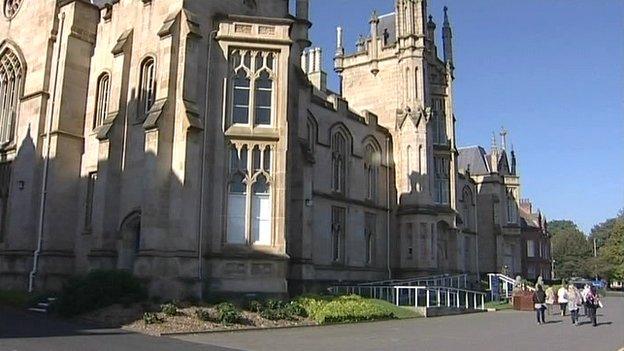Ulster University: Languages school to close and maths degrees cut
- Published
Ulster University is to close its school of modern languages at its Coleraine campus and cut maths degrees as a result of budget reductions.
Ulster University is to close its school of modern languages at its Coleraine campus and cut maths degrees as a result of budget reductions.
The move follows an £8.6m cut in the subsidy received from the Department for Employment and Learning.
Existing modern languages students and those due to begin language degrees this month will be able to finish them.
Several other subject areas are affected, with the university no longer offering single honours maths degrees.
Prof Paddy Nixon, the university's vice-chancellor, said moving to a single campus had been considered as a way of saving money.
But he added that had been ruled out and the university was committed to its four existing campuses.
Decisions
However, there will be changes to some courses offered at each site.
Interior design courses will close, while computing, business management and marine science will be streamlined.
Prof Nixon said: "Modern languages is a subject that really doesn't attract students as you would expect.
"In the current environment, we simply can't cross-subsidise those subjects any longer.
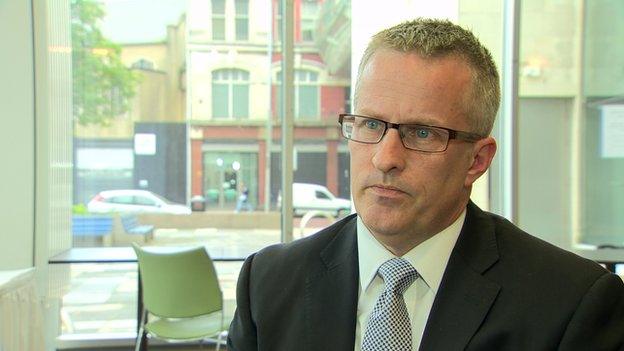
Prof Paddy Nixon said salary reductions for staff were not being considered
"All of the decisions were [based on] entry interest, research performance, student satisfaction, employment statistics and the overall balance of the university, and none of those decisions were easy.
He said government cuts to higher education budgets did not "send the right signals to international markets or to our young people".
Dysfunctional
"We've got to look at how we are disinvesting rather than investing in higher education.
"Whether [the executive] will listen is a difficult question."
Prof Nixon, who earns an annual salary of £250,000 plus benefits, said he would not be considering taking a pay cut.
"I wouldn't be suggesting that any staff take cuts - we need to be able to attract the best and maintain the best."
Earlier, Employment and Learning Minister Stephen Farry laid the blame for the course cuts on what he called the "dysfunctional" Northern Ireland Executive.
"I think it is a real shame we are in a situation where staff are losing opportunities," the Alliance MLA said.
Response
"It's also a real shame we're losing student places.
"I understand people will react to this - it's been very clear over the past number of months that this is because of the negative outworkings of the budget."
In June, the university announced it planned to shed 210 jobs in 2015/16 and 1,200 student places.
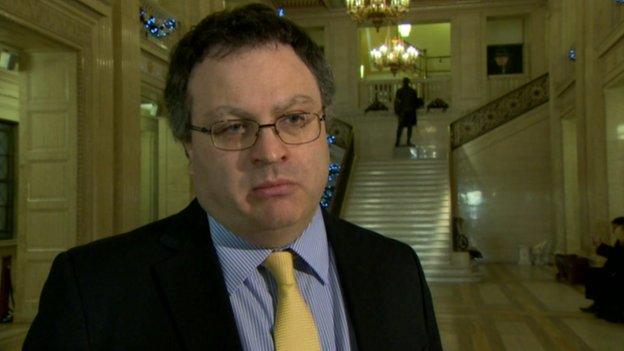
Stephen Farry blamed the "dysfunctional" executive for the cuts to the university's funding
It also announced that courses and subject areas would close in response to budget cuts.
About 20 staff are employed at the modern languages school that teaches subjects such as French, German, Spanish and Chinese.
A third of staff jobs will be lost in the school of history with a reduction from 15 to 10 posts, and two posts will be lost in the school of media, film and journalism.
Failing
Across Ulster University as a whole it is expected that about 185 full-time equivalent posts will go, with volunteers for redundancy expected to confirm their departure by January next year before leaving at the end of April.
Ulster University students' union president Colum Mackey said the executive had not prioritised higher education and accused it of "failing a generation of young people".
Fergal McFerran, president of the National Union of Students and Union of Students in Ireland, said the cuts could create a "lost generation of people left with no hope and no career prospects".
Sean Smyth, of the trade union Unite, said the "short-sightedness of Stormont policies" had led to the cuts.
He added: "How can Northern Ireland develop an outward-looking economy without an adequate supply of people able to communicate in modern languages like Chinese and German?"
- Published18 August 2015
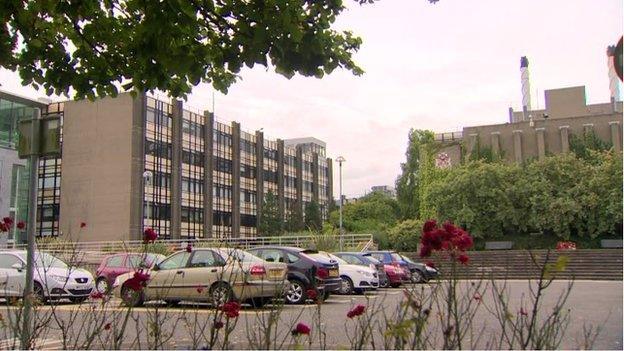
- Published18 June 2015
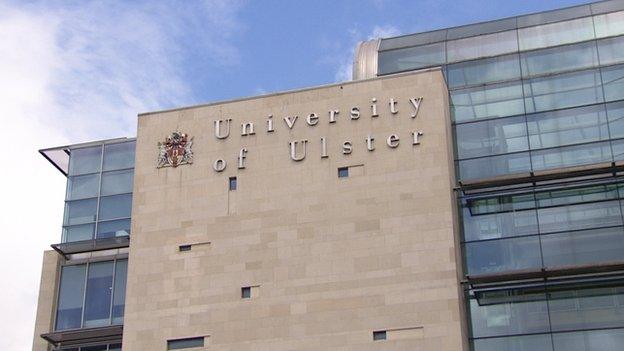
- Published5 February 2015
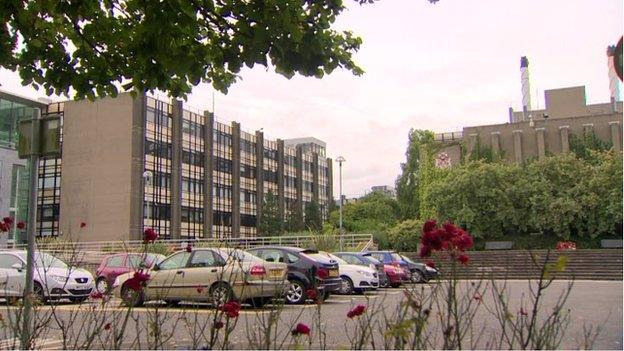
- Published24 April 2015

- Published14 April 2015
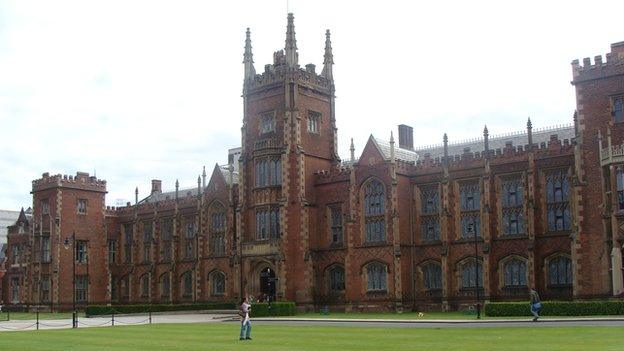
- Published24 February 2015
